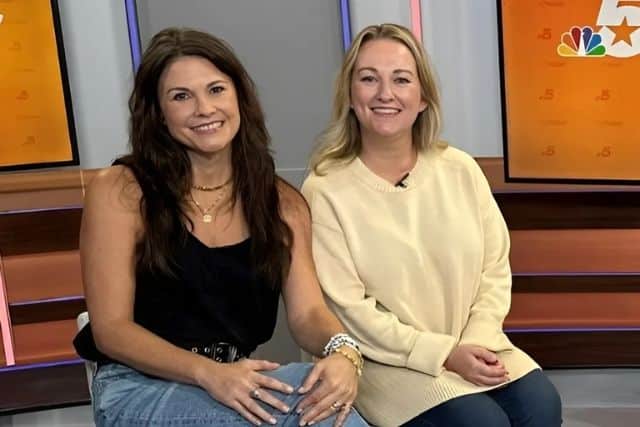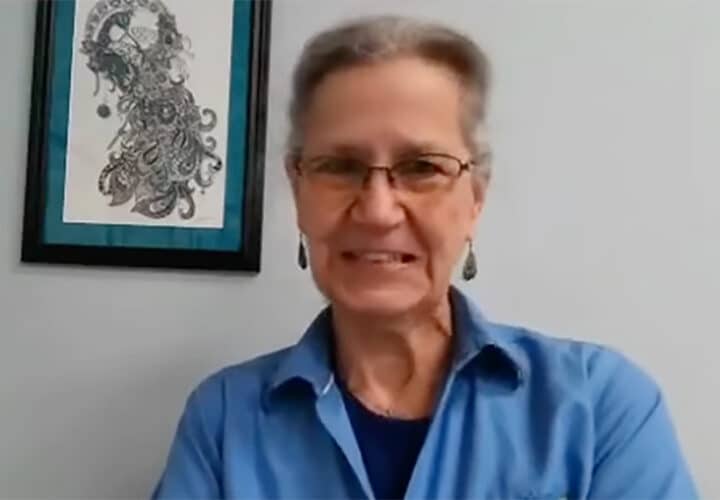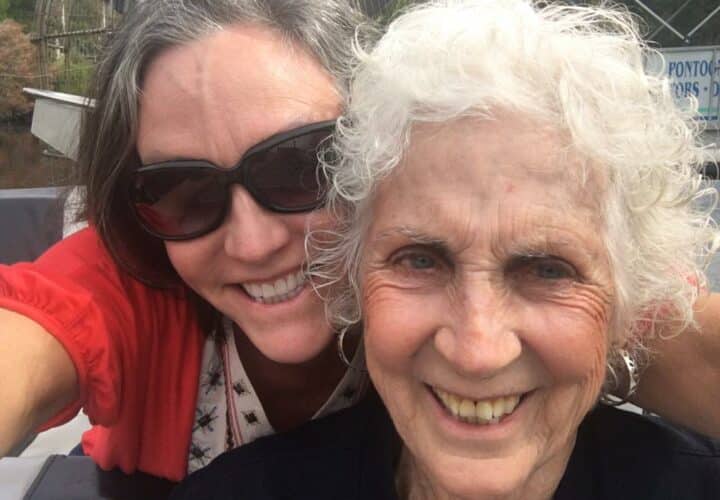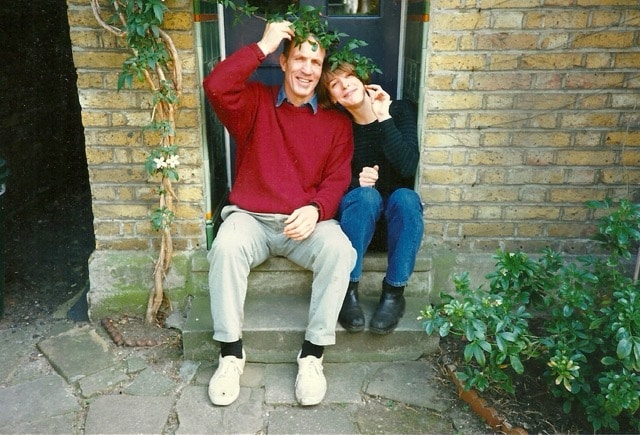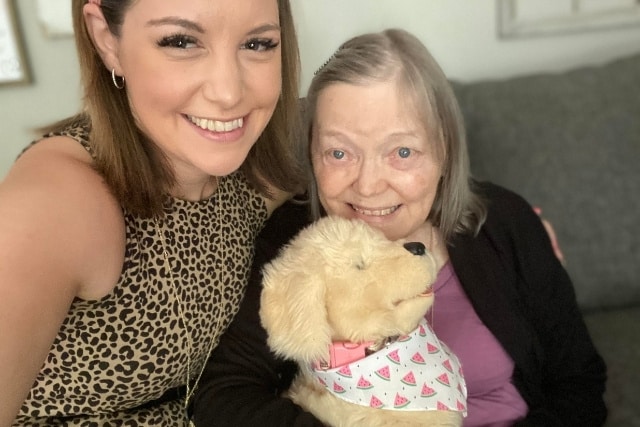In three of our favorite recent VOICES essays, writers share how caregiving became a catalyst for them to launch creative pursuits.
Caregiving for loved ones living with dementia can be challenging. Creative outlets can help. From caregiving podcasts to Instagram accounts, several of our VOICES writers recently started creative projects despite being unsure how they might evolve. These writers reported that iIf engaging in difficult and truthful conversations around caregiving could help even one other person feel less alone, that would be enough.
But these creative projects offered self-care benefits as well, providing the authors with space to process their own emotions as caregivers. Being open about the caregiving experience helped foster community with others who could relate.
Documenting their own journeys was a way for the authors to preserve the legacy of their loved ones, too.
“Turning something so heartbreaking into something that helps others is something our moms, Janet and Johnnie, would be incredibly proud of,” writes caregiver Joanna Anderson. “This [effort] is, in essence, a love letter to them.”
Going Public with Notes About Dementia
https://www.beingpatient.com/voice/dementia-notes/
Saskia Howen searched for ways to process the grief and guilt that came with being the primary carer for her mother who lived with dementia. Talking to friends and joining a bi-weekly support group offered some solace, but starting the DementiaNotes Instagram account as a public diary is what gave Howen a new perspective.
“I walk imperfectly with my mom, determined to channel our grief into something of beauty that leaves a tiny positive mark of our humanity on the broader tapestry of our collective consciousness,” she writes.
DementiaNotes is also an act of self-love, according to Howen.
“Writing publicly was more therapeutic,” she said. “Not only did it hold me accountable to frame my experiences in a constructive way, it helped me adopt an observer mindset.”
Instagram has become another place to learn from others in similar caregiving circumstances. In preserving her mother’s legacy on Instagram, Howen has found a supportive community that has continued to thrive in the face of her mother’s progression with dementia.
“Bearing witness to others’ pain, and even joy is the privilege I didn’t know I needed,” Howen writes.
Two Daughters of Moms With Alzheimer’s on Coping, Community, and Compassion
https://www.beingpatient.com/voice/you-forgot-that-i-existed/
Joanna Anderson and Sue Nicolaidis are childhood friends who rekindled their friendship and channeled their shared journey as dementia caregivers into producing the podcast, “You Forgot That I Existed.”
Nicolaidis moved her mother to Texas from Ohio to be closer to her family, but as her mother’s health deteriorated, Nicolaidis’ own life started to feel out of orbit. Nicolaidis felt “increasingly isolated.” After her mother’s death, Nicolaidis continued to suffer from frequent bouts of guilt.
“I continued to have vivid dreams where I questioned whether I had done enough,” Nicolaidis writes.
Anderson was in the midst of making the difficult decision to move her mother with Alzheimer’s into an assisted living facility, when a text from Nicolaidis spurred the start of their conversations about navigating caregiving.
Years later Anderson and Nicolaidis have built an entire community of caregivers through their podcast. They regularly produce episodes with experts and caregivers. They find comfort in being able to lean on one another.
“Turning something so heartbreaking into something that helps others is something our moms, Janet and Johnnie, would be incredibly proud of,” Anderson writes. “This podcast is, in essence, a love letter to them.”
Navigating Alzheimer’s, Ambiguous Grief, and Healing Through Humor
https://www.beingpatient.com/voice/honoring-my-mothers-legacy/
Bethany Wallace, a marriage and family therapist, describes her mother as “the glue that kept our family together — the one who organized family reunions, sent out birthday cards, and kept us updated through email and phone calls.”
So when Wallace’s mother was diagnosed with dementia, things shifted dramatically for Wallace and her two brothers. Their dad had already been diagnosed with Parkinson’s disease. Now the kids had to take on the role of caring for both parents.
A second diagnosis made matters even more complicated: Wallace’s mother suffers from anosognosia, a condition that causes her to not recognize or accept her diagnosis.
“We became the memory keepers, the storytellers, and the ones responsible for making hard decisions,” Wallace writes.
The best way to work through their shared grief and navigate the difficult journey ended up being a podcast. Wallace and her siblings launched “Mom and Dad have Dementia,” and began speaking openly about their caregiving journeys. By bringing attention to the challenges of Alzheimer’s and caregiving, they are promoting the open and truthful conversations their mom often facilitated.
“What surprised me most was how often we found ourselves laughing uncontrollably during our podcast recordings,” Wallace writes. “Through that platform, and by acknowledging the hard stuff, we are finding joy and healing.”
Get in touch and share your story
VOICES is Being Patient’s series of essays written by people who are or have been a caregiver to a loved one living with dementia. If you are interested in sharing your caregiving story, please reach out to lauren@beingpatient.com for details on how to contribute.
